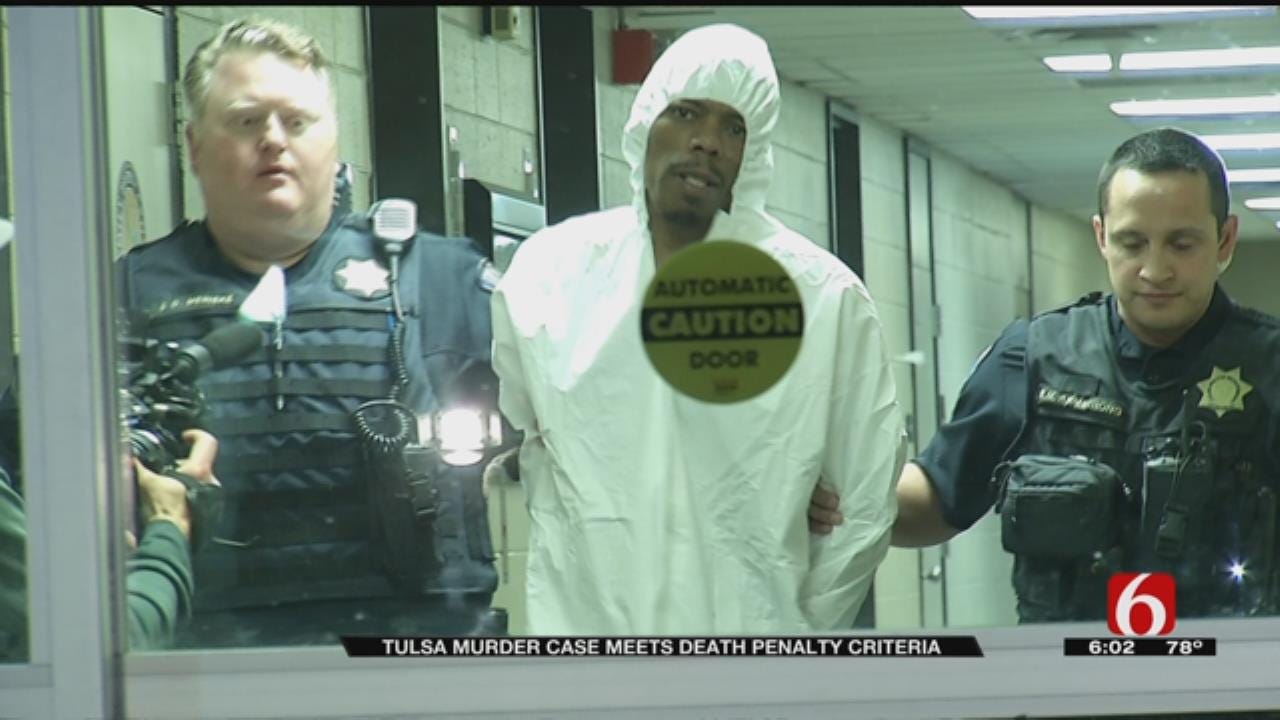Tulsa County Prosecutors Pursuing First Death Penalty Case In 8 Years
<p>The Tulsa County District Attorney's Office is pursuing a death penalty case for the first time in eight years.</p>Tuesday, September 12th 2017, 6:09 pm
The Tulsa County District Attorney's Office is pursuing a death penalty case for the first time in eight years.
We wanted to know why prosecutors seek the death penalty in some murder cases and not others.
Some may think this is a decision that's easy, but in fact, prosecutors have to go through a rigorous process to even go down this road.
And that's just the beginning.
Gregory Epperson, 41, is accused of killing Kelsey Tennant, 19, by strangling her in her apartment back in March.
Related Story: Prosecutors Seek Death Penalty For Man Accused Of Strangling Tulsa Teen
Her murder is the first case in eight years that Tulsa County prosecutors are pursuing the death penalty.
Tulsa county DA Steve Kunzwieler issued a statement saying:
“Today the State of Oklahoma filed what is known as a Bill of Particulars in the case of State of Oklahoma vs Gregory Epperson. The filing of that document is a preliminary step in asking a court to give consideration to the death penalty as a sentencing option.
The decision to file the Bill of Particulars was not one taken lightly by me or my office but was made after several months of careful consideration.
As with all cases, Mr. Epperson is presumed innocent under the law until a judge or jury determines otherwise.
In a first-degree murder case where a Bill of Particulars has been filed all three sentencing options are available should a defendant be found guilty: life, life without parole or the death penalty. Oklahoma law provides eight statutory aggravating circumstances upon which a sentence of death may be imposed. The Bill of Particulars filed in this case alleges two of those eight aggravating circumstances.
In order for a death sentence to be effectuated, a defendant needs to be convicted beyond a reasonable doubt of murder in the first degree. In addition, at least one aggravating circumstance also needs to be proven beyond a reasonable doubt.”
But many wonder what that consideration means and some victim's families may wonder why not their case.
Assistant District attorney Kevin Gray tells us it's not an easy process.
Reporter Erin Conrad: “Would you say that prosecutors take that kind of sentence lightly?”
Gray: “Absolutely not. I've been a part of a number of staffings for cases like this and the number of staffings we look at and say no to is certainly more than the ones we say yes to."
To move forward with a death penalty case, it has to meet at least one of eight aggravating factors in Oklahoma, such as the murder was especially heinous, atrocious, or cruel.
An entire panel of attorneys and investigators have to agree it fits and then jury selection and the trial have added processes.
"By choosing to make a death penalty case, we have chosen a more difficult path,” said Gray.
It’s something that Gray says, once explained, most victims' families understand.
"On a regular basis, a family will ask, ‘Is this a death penalty case?’ I have never had a family get angry when I've explained to them that it's not,” said Gray.
For more details on what it takes for Oklahoma prosecutors to pursue the death penalty, read the list below.
Oklahoma: 21 Okl. St. Ann. § 701.12
(1) The defendant was previously convicted of a felony involving the use or threat of violence to the person;
(2) The defendant knowingly created a great risk of death to more than one person;
(3) The person committed the murder for remuneration or the promise of remuneration or employed another to commit the murder for remuneration or the promise of remuneration;
(4) The murder was especially heinous, atrocious, or cruel;
(5) The murder was committed for the purpose of avoiding or preventing a lawful arrest or prosecution;
(6) The murder was committed by a person while serving a sentence of imprisonment on conviction of a felony;
(7) The existence of a probability that the defendant would commit criminal acts of violence that would constitute a continuing threat to society; or
(8) The victim of the murder was a peace officer as defined by Section 99 of this title, or correctional employee of an institution under the control of the Department of Corrections, and such person was killed while in performance of official duty.
More Like This
September 12th, 2017
January 2nd, 2025
September 29th, 2024
Top Headlines
April 13th, 2025
April 13th, 2025











